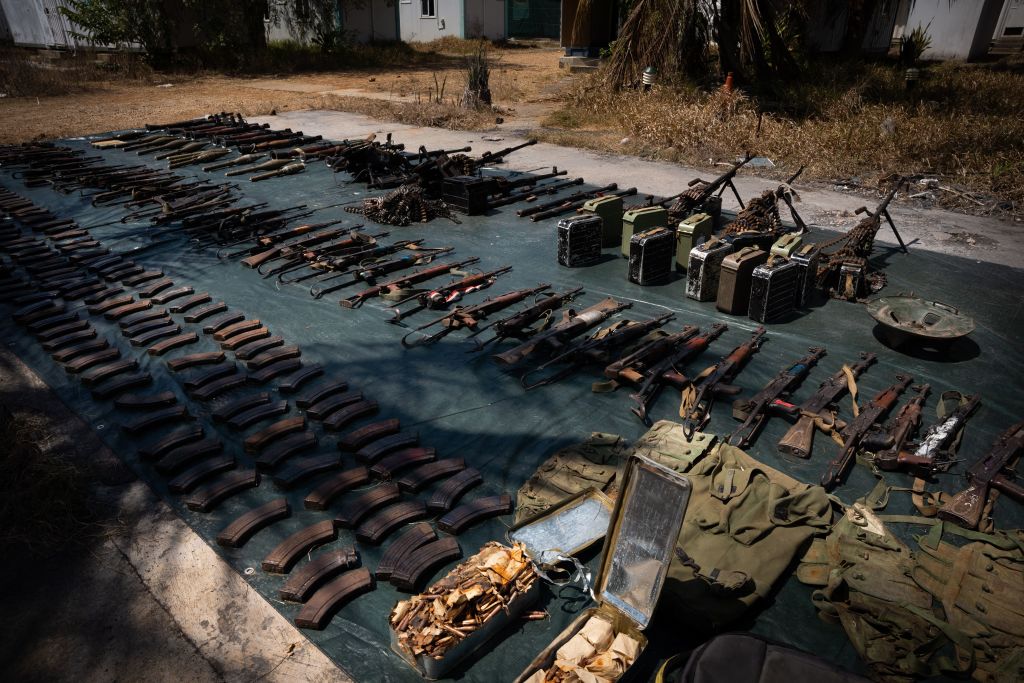ADF STAFF
Two reports shed light on the growing connection between Islamic State group affiliates in Mozambique and the Democratic Republic of the Congo (DRC).
For the first time, the United Nations Group of Experts on the DRC highlighted organizational links between the insurgents in Mozambique’s northern Cabo Delgado province and the Allied Democratic Forces terror group based in the eastern DRC.
“Since late 2021, [the Allied Democratic Forces] has held several meetings with representatives of [the Islamic State group] and/or Ahl al-Sunna wal-Jama’a (ASWJ) in Mozambique, in South Kivu, to discuss operational strategy and tactics,” the experts stated in their June 13 report.
“One such encounter occurred in Shabunda territory in June 2022 following a similar meeting in Kigoma, Tanzania, in August 2021. Sources reported that in early 2023, Ibn Omar and Sheikh Abu Yassir Hassan, the military and spiritual leaders of Ahl al-Sunna wal-Jama’a in Mozambique, respectively, travelled to South Kivu, where they met with senior members of the leadership of [the Allied Democratic Forces].”
ASWJ also is known as IS-Mozambique, and the Allied Democratic Forces also is known as the Islamic State Central Africa Province (ISCAP).
“The Allied Democratic Forces’ objective is to carry out acts of terror that make big publicity,” DRC government spokesperson Patrick Muyaya said at a briefing after the militants killed 41 people, including 38 students, at a Ugandan school 2 kilometers from the DRC border on June 17.
Publicity is one of the Islamic State group’s goals, as the international organization operates on multiple media platforms and regularly highlights attacks by its affiliates.
The recent U.N. report showed deep connections between the Islamic State group’s parent organization and its affiliates that previously had not been documented.
The Islamic State group has “provided financial support to [the Allied Democratic Forces] since at least 2019 through a complex financial scheme involving individuals in several countries on the continent.”
Another comprehensive report, published on June 1 by the Bridgeway Foundation, went into greater detail on how IS manages its finance networks in Africa, with cells in Mozambique, Somalia, South Africa, Tanzania and Uganda.
IS has used “a regionally pooled approach in which regional ‘offices’ oversee revenue generation and distribution to help finance Islamic State affiliates in their area of responsibility,” the Bridgeway report stated.
The Bridgeway Foundation is a charitable organization dedicated to preventing genocide with a specific focus on Central and East Africa.
Evidence from Bridgeway and the U.N. Group of Experts leads up to 2021, but the IS financing networks have since taken hits.
In January of this year, security forces killed Bilal al-Sudani, who coordinated IS financial flows through Somalia.
Also in Somalia, Abdirizak Mohamed Abdi Jimale, who reported to al-Sudani and managed transactions, was convicted and jailed, according to the Group of Experts report.
The recent attack in Uganda was typical of the Allied Democratic Forces, which often uses machetes and hatchets instead of guns. Joint military efforts by the DRC and Uganda have focused on flushing the group from its South Kivu region hideouts.
Maj. Gen. Dick Olum, commander of Ugandan troops in the DRC, called the school attack “a typical signature” of the group.
“They are under huge pressure,” he told reporters. “That’s what they have to do to show the world that they are still there, and to show the world that they can still do havoc.”
Of the many armed groups operating in the eastern DRC, the Allied Democratic Forces are among the deadliest, accused of killing thousands of civilians.
Originally a rebel group that formed in Uganda, it has been present in the eastern DRC since the 1990s and pledged allegiance in April 2019 to the Islamic State group, which began referring to the group as ISCAP.
Four months later in August 2019, the caliphate acknowledged ASWJ as an affiliate and referred to it as a branch of ISCAP.
ASWJ began making international headlines in 2020 with a spate of larger, better coordinated and deadlier attacks. In May 2022 analysts noted that the caliphate had begun referring to the group as IS-Mozambique.
Beyond the IS international and regional financial networks, there is evidence of contact between the ASWJ and the Allied Democratic Forces, including reports that some ASWJ leaders were trained in the DRC several years ago.
In 2018, Mozambican security forces arrested six Ugandans affiliated with the Allied Democratic Forces in Mocimboa da Praia, a center of ASWJ activity in Cabo Delgado.
“The group’s leaders have links with religious circles, commercial and military activities of radical Islamist groups in Tanzania, Somalia, Kenya and the Great Lakes Region, mostly through training there,” according to reporting by Peter Fabricius of the South Africa-based Institute for Security Studies.
“The members are trained both locally — sometimes by disaffected police officers and security guards — and externally in Tanzania and the Great Lakes Region by militia chiefs hired by ASWJ in Tanzania, Kenya and Somalia.”

